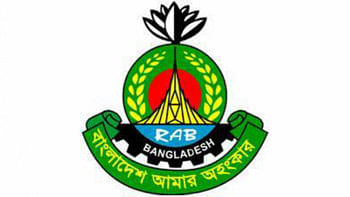Promote urban farming through CSR, speakers emphasise at CSR Dialogue: Dhaka

Participants in an online discussion suggested that CSR initiatives should support urban farming projects to support the government's effort to achieve food security.
The event titled 'CSR Dialogue: Dhaka' was held on October 24, 2022. It was part of a joint initiative of The Daily Star and CSR Window known as "A Better Tomorrow: CSR Summit and Awards". The annual nationwide programme aims to create dialogues for future development and sustainability solutions and recognise corporations for their innovative and world-class CSR initiatives, social projects and programmes implemented for sustainable impacts on society.
Zaqaria Prince and his team from Terracity are working on a community-led urban farming project in Korail slum. Under this project, 92 farmers are currently farming on 118 plots in an area of 8,641sqm. They have distributed vegetable seeds and seed cards among the slum dwellers and track their farming progress. The project has enabled slum dwellers to get fresh vegetables at an affordable price. Zaqaria sought support from CSR initiatives to expand their project further.
Farah Kabir, Country Director of ActionAid Bangladesh, appreciated Zaqaria's initiative and added that similar projects had been done outside Dhaka. She pointed out that most of the slums don't have easy access to water. Therefore, she suggested, it is important to do more research on how to introduce farming in land-locked urban areas. She urged the government to allocate khas land to poor farmers.
Humayun Kabir, EVP and Head of the Regulatory & Corporate Affairs Department, bkash, said that urban farming initiatives will help achieve food security. It will also help families to be self-reliant through selling their produces. He also talked about bkash's book reading project which is currently running its operation in 64 districts of the country. Around 27 lac students have been benefitted this project, informed Humayun Kabir.
Sumaiya Tabassum Ahmed, Sustainability, Partnership and Communications Manager at Unilever, shared that all of her company's plastic packaging would be fully reusable, recyclable or compostable by 2025. They are also working on creating awareness about the harmful effects of using plastic. She suggested that corporates and social organisations should work in collaboration to take social development projects forward.
Faiaz H. Chowdhury, Chief Business Officer of Energypac Power Generation Limited, suggested that people can grow organic vegetables on the rooftop of their building. In 2017 they ran project in Dacope, Khulna to ensure clean water and sanitation facilities for the local community. Now, they are planning to expand the project further in Khulna.
"BAT Bangladesh has been running the largest private sector-driven afforestation programme in Bangladesh since 1980. Over the past 42 years, we have distributed 120 million trees, including 5 million free saplings in 2022. We want to support the government to achieve SDG 13 (Climate action) and SDG 15 (Life on Land)" said Sazzad Hossain, Head of Leaf Operations, BAT Bangladesh. He also talked about their CSR initiative
'Safe Drinking Water Initiative' under which BAT Bangladesh has installed 115 water treatment plants in 22 districts to ensure the supply of pure drinking water to rural communities.
"We must ensure water supply in slums," said Rashed Khan Menon, Member of Parliament from Dhaka-8. Since the government has a resolution of leaving no land unused, the khas lands surrounding Dhaka city can be allotted among the local community, he added. He assured that he would inform the local government about it. The corporate organisations have responsibility to invest a significant portion of their profit in CSR projects so that it can bring positive changes in peoples' lives.
The online session was moderated by Ahsan Rony, Co-Founder of CSR Window.

 For all latest news, follow The Daily Star's Google News channel.
For all latest news, follow The Daily Star's Google News channel. 



Comments